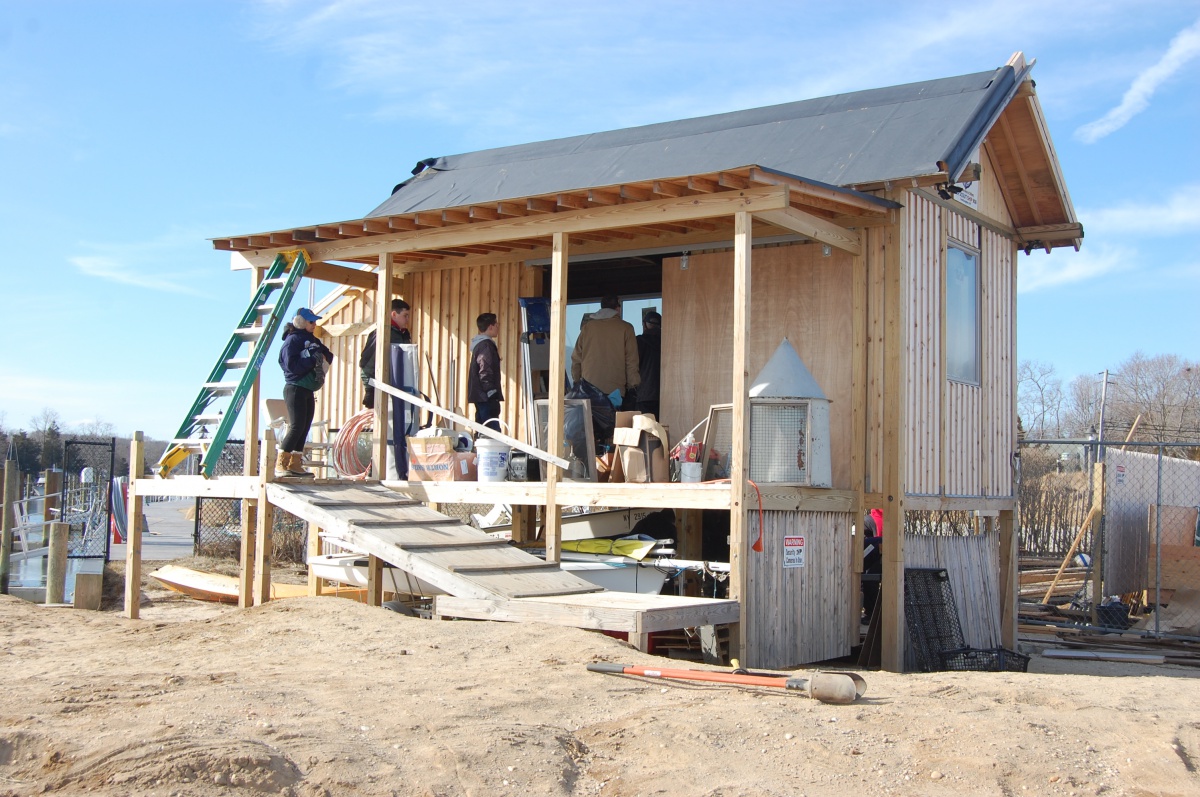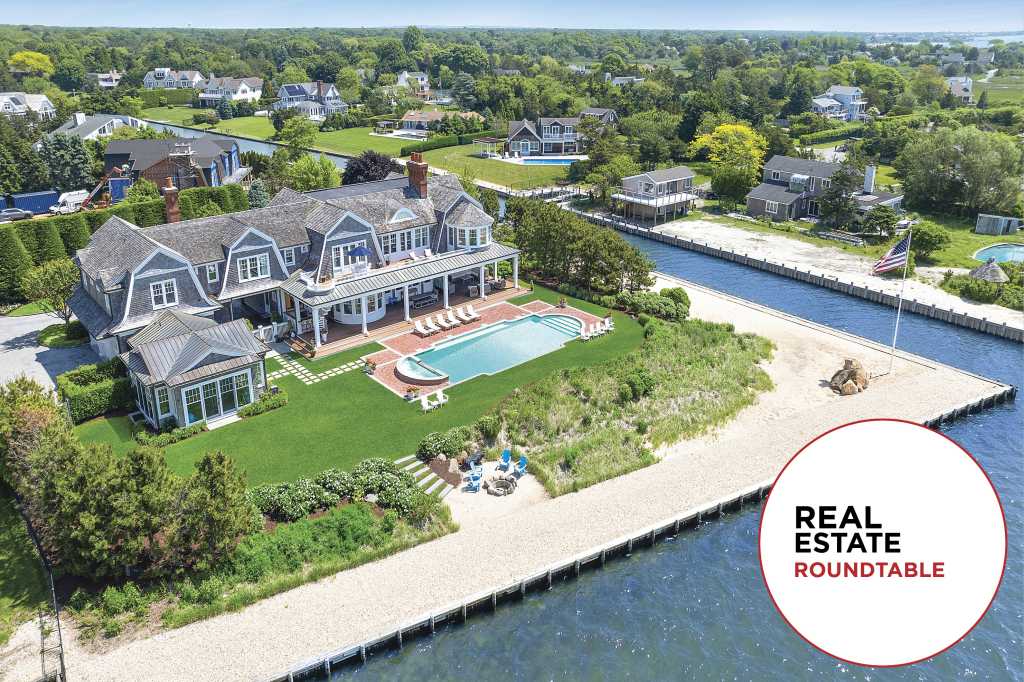Conscience Point Shellfish Hatchery Aims to Fix Bays

Volunteers from varied nonprofit groups plus individuals who just wanted to lend a hand got together at Conscience Point in North Sea on Saturday morning, March 1, to help complete an oyster hatchery aimed at restoring the ecological health of local bays by removing excess algae.
The Conscience Point Shellfish Hatchery, sited on land owned by the Southampton Historical Museum, is managed by Ship 908, a local unit of the Sea Scouts, which is a branch of the Boy Scouts of America.

Two years ago, Sea Scouts raised 120,000 oysters at Conscience Point, Ship 908 Skipper Josh Belury told a crowd of volunteers. Then last year they raised the same amount of oysters plus 350,000 clams.
“What we really need to be doing is growing an oyster reef,” Belury said. “Oyster reefs take care of themselves.”
The Sea Scouts would like to use their oyster hatchery to create artificial reefs. Free-swimming oysters are vulnerable to predators—such as blue claw crabs, which can eat 40 oysters a day—but oysters in reefs are fortified, Belury explained. An individual oyster filters algae from 5 gallons of water every hour, so three reefs of 1 million oysters each could filter every drop of water in North Sea Harbor every 24 hours, he said.
Ship 908 and the Moriches Bay Project organized the work day, which drew volunteers from the Daughters of the American Revolution, Hampton Bays Boy Scout Troop 483 and Venturing Crew 728 plus Girl Scouts and students from area schools. The Moriches Bay Project is an aquatic restoration program created in 2013 by the West Hampton Dunes Barrier Beach Association.

Volunteers took a break from work for the dedication of the First Coastal Algae Room. First Coastal is a Westhampton Beach-based company that provides environmental services focused on the waterfront. The company donated toward the climate-controlled room inside the hatchery where three different kinds of algae will be cultivated to feed oysters during their development from larvae to spat.




